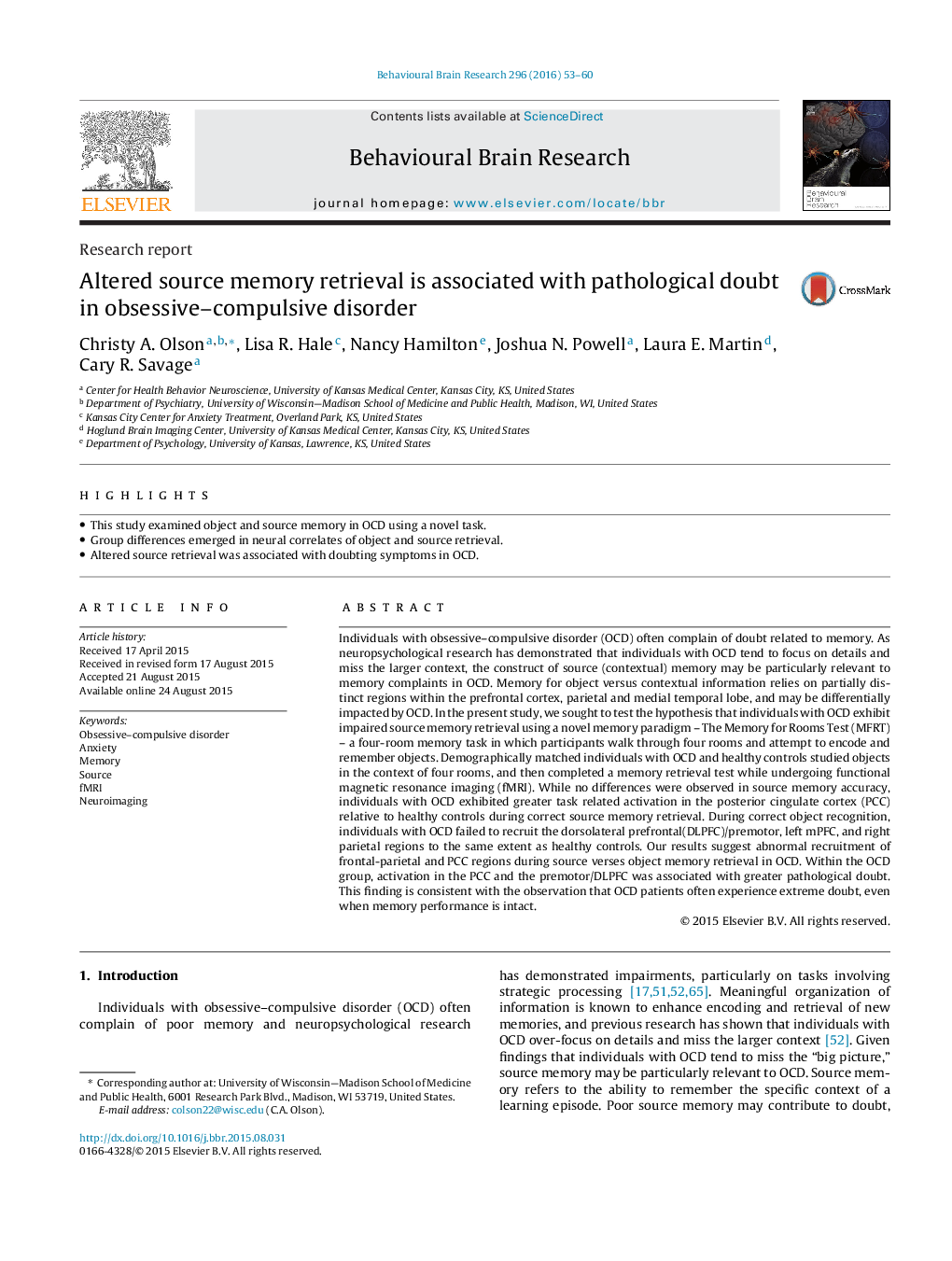| کد مقاله | کد نشریه | سال انتشار | مقاله انگلیسی | نسخه تمام متن |
|---|---|---|---|---|
| 4312318 | 1612936 | 2016 | 8 صفحه PDF | دانلود رایگان |
• This study examined object and source memory in OCD using a novel task.
• Group differences emerged in neural correlates of object and source retrieval.
• Altered source retrieval was associated with doubting symptoms in OCD.
Individuals with obsessive–compulsive disorder (OCD) often complain of doubt related to memory. As neuropsychological research has demonstrated that individuals with OCD tend to focus on details and miss the larger context, the construct of source (contextual) memory may be particularly relevant to memory complaints in OCD. Memory for object versus contextual information relies on partially distinct regions within the prefrontal cortex, parietal and medial temporal lobe, and may be differentially impacted by OCD. In the present study, we sought to test the hypothesis that individuals with OCD exhibit impaired source memory retrieval using a novel memory paradigm – The Memory for Rooms Test (MFRT) – a four-room memory task in which participants walk through four rooms and attempt to encode and remember objects. Demographically matched individuals with OCD and healthy controls studied objects in the context of four rooms, and then completed a memory retrieval test while undergoing functional magnetic resonance imaging (fMRI). While no differences were observed in source memory accuracy, individuals with OCD exhibited greater task related activation in the posterior cingulate cortex (PCC) relative to healthy controls during correct source memory retrieval. During correct object recognition, individuals with OCD failed to recruit the dorsolateral prefrontal(DLPFC)/premotor, left mPFC, and right parietal regions to the same extent as healthy controls. Our results suggest abnormal recruitment of frontal-parietal and PCC regions during source verses object memory retrieval in OCD. Within the OCD group, activation in the PCC and the premotor/DLPFC was associated with greater pathological doubt. This finding is consistent with the observation that OCD patients often experience extreme doubt, even when memory performance is intact.
Journal: Behavioural Brain Research - Volume 296, 1 January 2016, Pages 53–60
